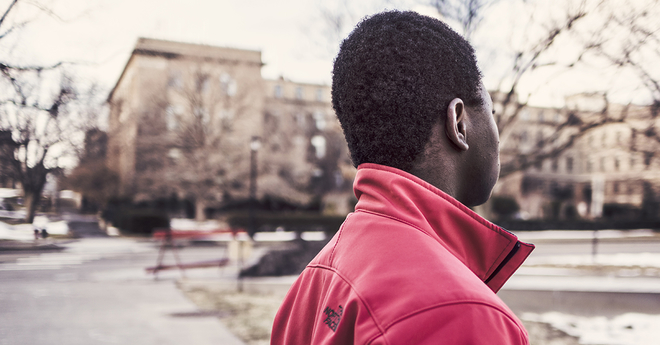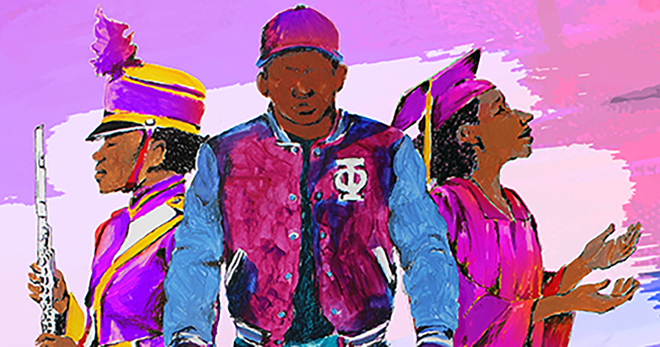Q&A: LGBT pride in ending nicotine and tobacco use
Five truth activists gathered at the Capital Pride Festival in Washington, D.C. on Sunday, June 11 to engage attendees and expose the tobacco industry’s history of targeting the LGBT community. “We’re out here, we’re celebrating, we’re supporting each other,” said Kacey King, one of the five activists. “But there are still things attacking our communities and we should be aware of that.”
Targeted marketing of tobacco products to the LGBT community began as early as the 1990s. These targeting tactics include advertising in gay press publications, depicting tobacco use as a normal part of LGBT life, participating in giveaways, sponsoring Pride festivals, and hosting outreach efforts (e.g. “LGBT bar nights”) featuring specific cigarette brands. In 1995, the tobacco company R.J. Reynolds created “Project SCUM” (Sub-Culture Urban Marketing) to boost cigarette sales by targeting gay men and homeless individuals with advertisements and displays placed in communities and stores. More recently, tobacco companies have been leveraging social media to advertise e-cigarette products, and LGBT individuals are reporting significantly higher rates of tobacco-related media exposure than their non-LGBT counterparts.
Decades of targeted marketing in the LGBT community has contributed to higher prevalence of tobacco use. Between 2020 and 2021, e-cigarette use increased, with higher prevalence among lesbian, gay, and bisexual youth compared to heterosexual youth. Young transgender and non-binary people also have higher prevalence of tobacco product use than their cisgender peers, according to an upcoming Truth Initiative analysis. Research shows that stress related to homophobia and transphobia increases e-cigarette use among LGBT youth.
In honor of LGBT Pride Month, Truth Initiative spoke with three of the five youth activists gathered at the Capital Pride Festival: Kacey King, a truth activist from Georgia; Marc Hawk III, a truth Ambassador from Alabama; and Faria Tavacoli, a truth activist from Nevada.
This interview has been lightly edited for clarity.
Q: What makes you proud to be a member of the LGBT community?
Kacey: My sister. I watched her struggle growing up with her identity and her sexuality. She set the pathway for me to love myself.
Marc: I get to express myself authentically as who I am. I can come into the community and there are people who are going to embrace me, people who have seen similar struggles or have had other experiences that I can relate to.
Faria: There are a lot of negative things going on and I think, in a time of dissent, it’s really amazing to be a part of such a vibrant community and express who I am as a person and be unapologetically myself.
Q: How do you feel about the tobacco industry’s history of targeting the community?
Faria: I think it’s really disheartening to see how LGBT people are impacted by the tobacco industry. It makes me angry, but at the same time it empowers me to make sure that we as young people are really speaking out and making sure that these issues don’t continue to control our communities and our neighborhoods.
Marc: There are social justice issues that relate to how they’re marketed to people like me – people who are Black, people who are gay. I saw increased use among people who represent communities that I represent, and it was something that I didn’t want to take part in anymore. I stopped using vape products, stopped using tobacco products.
Kacey: Especially after watching the “Black Lives / Black Lungs” documentaries, I understand it goes back before we were even alive and continues to happen in different forms, with vapes, with JUULs. Our parents smoked cigarettes and now people just don’t think it’s that harmful, but historically it’s always been harmful. My intersectionality has been attacked by Big Tobacco companies and I see how damaging that has been.
Q: Why are you excited to speak with attendees today about ending nicotine and tobacco use among the community?
Marc: Before I got connected with Truth Initiative, I actually did not know about the effects of tobacco on people who are from marginalized communities like me. So there may be someone here today who’s affected by this issue and they just don’t know how it’s affecting them or will continue to affect them. So I actually could affect positive change today.
Faria: I’m really excited to just educate people about Truth Initiative. It’s such a vibrant day here in D.C. It’s great weather, great people – really resilient, empowered individuals making sure that we’re protecting one another. My goal is to make people understand that tobacco is an exploitative industry and really help them gain the confidence to not rely on tobacco use.
Kacey: Everyone deserves the right to make a choice, and you can’t make a proper choice if you don’t have the knowledge. So yes, we’re out here, we’re celebrating, we’re supporting each other, but there are still things attacking our communities and we should be aware of that. And then once you have all the knowledge, choose to do whatever you want but at least you have the proper choice, and that’s what I’m really passionate about. Having the education and knowledge to make the decision for yourself.
More in targeted communities
Want support quitting? Join EX Program
By clicking JOIN, you agree to the Terms, Text Message Terms and Privacy Policy.
Msg&Data rates may apply; msgs are automated.



